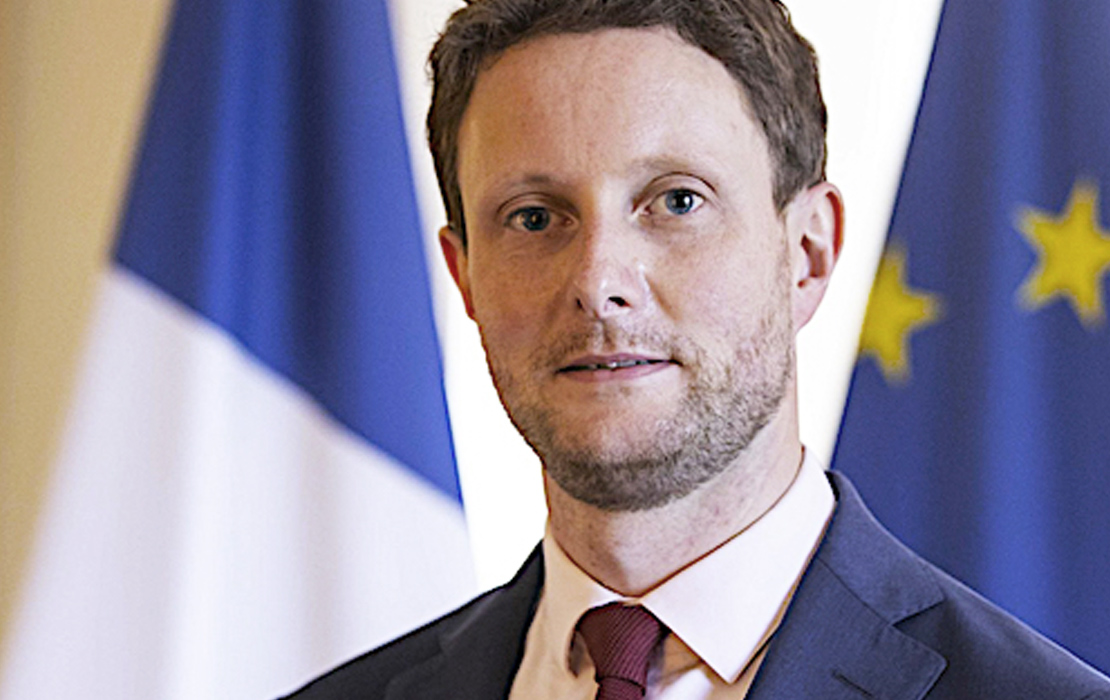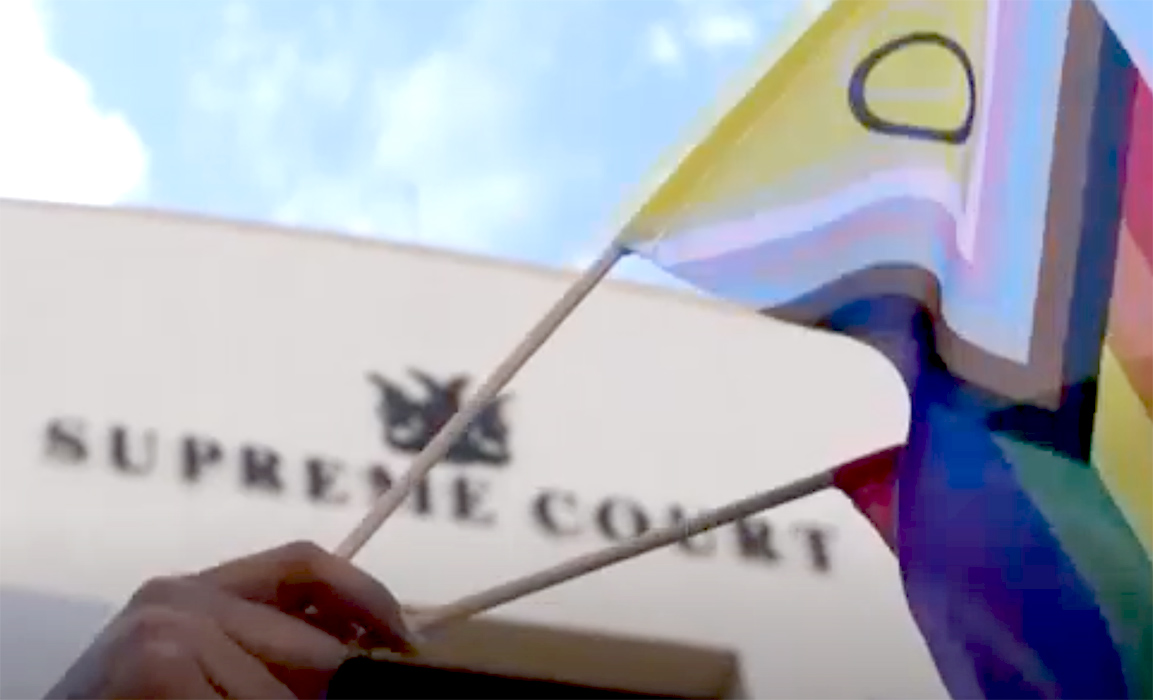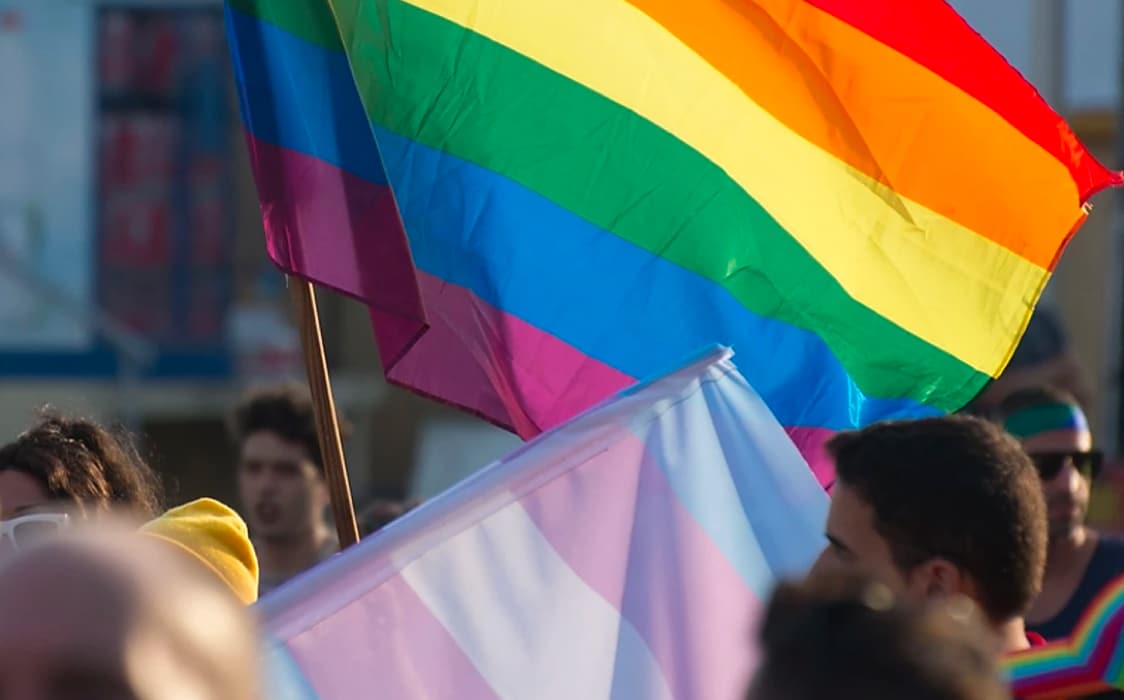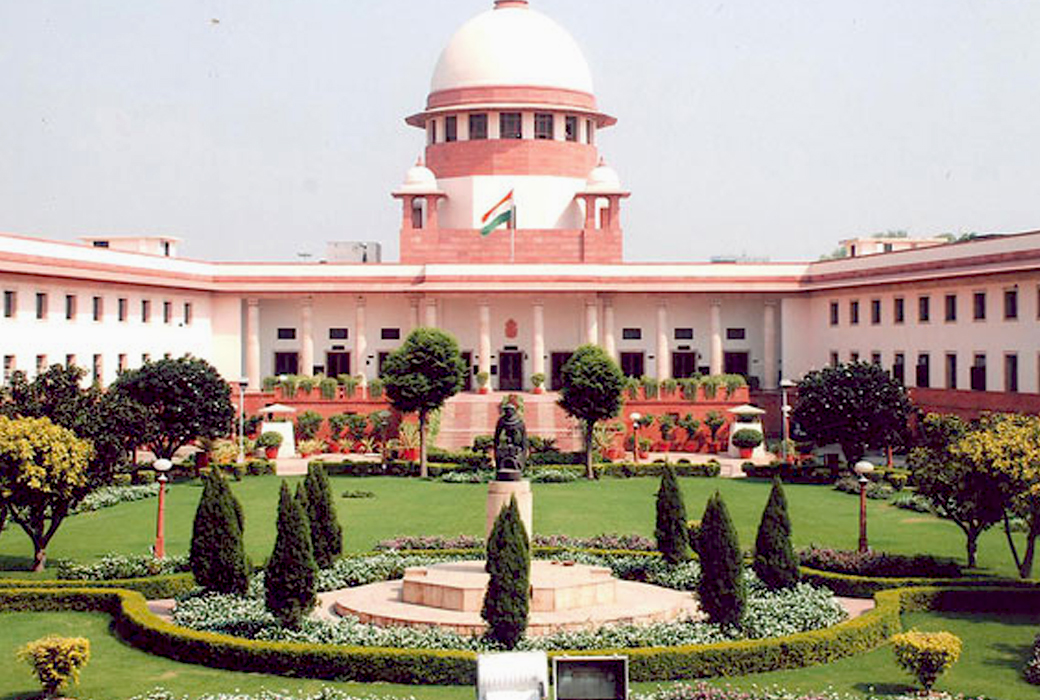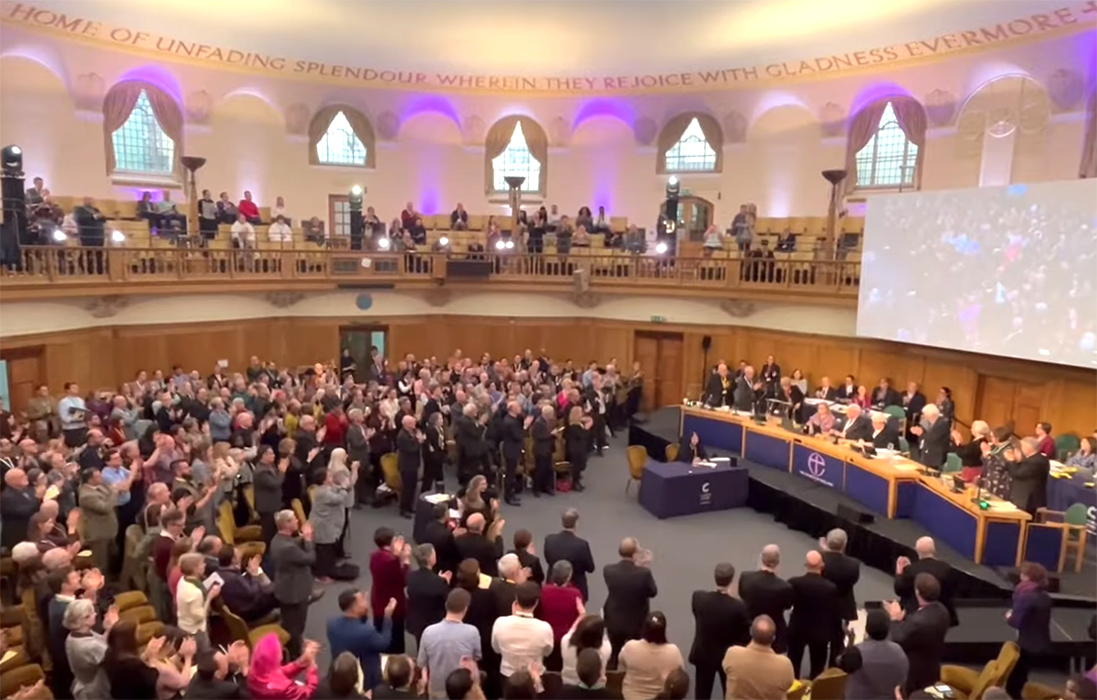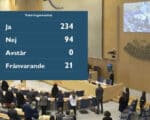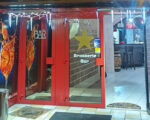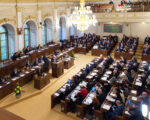>> Scottish agencies in drive to increase gay adoption
[spacer]
Si l’Écosse, région « ultra-friendly » avec des lois pionnières et plus de 90% des critères retenus cette année encore, selon le Rainbow Europe Index (classement réalisé par ILGA-Europe dans 49 pays), n’aura étendu l’égalité des droits du mariage aux couples de même sexe qu’en 2014, les adoptions homoparentales sont toutefois autorisées depuis 2009 et continuent d’augmenter chaque année.
Un enfant sur cinq serait ainsi confié à la quiétude d’un foyer LGBT, relève l’Herald Scotland, citant Margaret Moyes, responsable du « Charity Scottish Adoption », association caritative et « agence famille », qui réalise des campagnes ciblées pour inciter les couples homosexuels à adopter davantage. L’orientation sexuelle des adoptants n’a jamais révélé d’impact sur le bien-être ou le développement des enfants déjà placés par notre fondation. « Tous s’épanouissent. Nous ne pouvons qu’encourager les adoptions », ajoute t-elle, en invitant tous les parents candidats, peu importe le statut marital ou encore le genre et l’origine, à rentrer en contact avec les agences habilitées. « Ce sont des milliers d’enfants qui sont en attente de familles ».
« Pendant des années les gens ont raconté qu’il fallait être blanc, propriétaire, en couple et hétéro, pour pouvoir adopter… Mais, nos enfants viennent d’horizons diverses et nous avons besoin de futurs parents qui reflètent tout autant cette diversité », souligne en outre Vivienne Bonner, en charge d’un organisme dédié, au conseil municipal de Glasgow. Aucune condition, si ce n’est une limite d’âge. « Ce n’est pas la situation familiale qui compte, mais les capacités des parents à assumer l’éducation d’un enfant », précise aussi la responsable, qui tient à démystifier le « processus ».
James et Neil Smith sont le premier couple d’hommes à avoir reçu l’agrément en vue d’une adoption. Ils ont accueilli en 2010 leur fils Samuel, alors âgé de 4 ans, et la procédure a été validée deux ans plus tard.
« Les évaluations, sociale et psychologique, étaient franchement “intrusives”, mais la démarche tout aussi cruciale », confie James, 39 ans, mais « ça nous a permis d’y réfléchir profondément et d’envisager les changements qui allaient s’opérer. Et nous ne regrettons rien. Nos liens affectifs s’en sont d’autant plus consolidés. Être parent est la plus belle chose que l’on pouvait imaginer. Samuel est fabuleux, brillant et curieux et nous n’avons jamais été ennuyé parce qu’il avait deux papas, même lorsque nous l’accompagnons à l’école », poursuit-il, avant de conclure en espérant que sa famille inspire davantage de parents adoptifs à franchir le pas, « dans l’intérêt suprême des enfants ».
Joëlle Berthout
stophomophobie.org
[spacer]
>> With thousands of children in Scotland waiting to be adopted or fostered, adoption agencies are now actively seeking gay and lesbian couples to step forward.
Backing the campaign, James and Neil Smith have now chosen to tell the story of the adoption of their little boy Samuel so that other gay couples will follow in their footsteps.
Their story begins in 2009 – when access to adoption was widened by Holyrood decree to include gay and lesbian couples, alongside regulations allowing same sex couples to be considered as foster parents on the same basis as anyone else.
For the Smiths, it was the answer to their dreams of having a family, and they became the first same sex couple to be approved for adopting a child – going through the process with Glasgow City Council.
James 39, a CEO of the charity and outdoor learning centre @Hillhead and his partner Neil, 49, first fostered their son Samuel when he was four years old in 2010, and adopted him fully two years later.
Now the couple are urging others to follow their lead, saying that there are no barriers to those who have it in their hearts to give a child a home.
James said: « We wanted to have a family, and we thought ‘how are we going to do that?. There are a lot of children out there who need a family, just as we needed to be a family too. »
« We looked into adoption and the first thought was ‘can we do it? At the time it was not legally possible, but the legislation was coming into place so Glasgow City Council said that we could begin the process. »
It took two years to become successful candidates while the relevant legislation was put in place, with the couple going through six rounds of assessments where every aspect of their lives was scrutinised.
But the experience was crucial not only for showing the authorities that James and Neil were ready to be parents, but for preparing both men for the responsibility of looking after a child.
Neil said: « The assessments were intrusive, but fair and thorough. They covered all the different areas of our lives to see if we were suitable to be parents, from out family background to our work and out lifestyles. Absolutely everything was covered. »
« We were the first same sex couple to go through it and they wanted to make sure that there were no gaps anywhere. But everything was fine. »
James added: « The process gave us time to reflect on quite a lot of things, like how having a family is going to change your life. »
« And when you adopt a child there is going to be some baggage there that comes with them, and you have to expect that when you do it. »
« Being parents is better than what we expected. Samuel is a fabulous, bright and inquisitive wee boy and we all have a loving relationship.
« We can’t imagine life without him, and it’s like he’s always been here. »
The 10-year-old said: “It’s been amazing growing up with two dads. Neil knows IT and can help me fix things and James makes me laugh.
« We have fun and when I go to school no one has ever teased me about it. »
While ongoing support is available from the local authority, James and Neil are confident that their family unit is as strong as any other family.
James said: « Laws have changed now. You can be gay, straight, black, white or anything in between, and be considered as prospective adoptive parents. »
« You do not have to be married or even have a partner. There are so many people out there who could adopt if they wanted to try. »
The latest figures show that there were 13,875 children in some form of care last year across Scotland, with only 264 of them with prospective adoptive families.
The legislation allowing same sex couples to adopt has opened up new avenues for agencies seeking to find parents for these children, and Edinburgh-based charity Scottish Adoption is one of several groups in Scotland now running targeted recruitment campaigns encouraging lesbian and gay couples to consider it as an option for becoming parents.
Margaret Moyes, Chief Executive, describes this new focus as « very successful », reporting that 1 in 5 children placed by the charity is with a same sex couple.
She said: « The Agency’s experience has been that children have flourished in the care of their adoptive parents and LGBT adoption has become a mainstream part of their adoption work, with the numbers of couples and single adopters who are LGBT increasing every year. »
« Given there are still more children in Scotland needing adoptive parents than there are adoptive parents coming forward, we would encourage anyone interested in getting more information to get in touch with them or any of the other adoption agencies in Scotland. »
Glasgow City Council’s adoption body Families for Children approved 50 prospective parents last year, meeting its annual target.
Their rules state that anyone wishing to adopt a child aged between 0-4 years must be aged 45 or under, although this only applies to the younger member of a couple if two people apply together.
There is no discrimination on grounds of sex, marital status, gender or race, and now that all relevant legislation is in place it takes around six months for prospective adopters to work their way through the system.
Vivienne Bonner, Team Manager at the agency, said that many myths over the adoption process had to be dispelled.
She said: « For years people would say that you had to be a straight white couple, or own your own house, or many other falsehoods before you could adopt. »
« But today what we are looking for is not the prospective adopters family situation, but the skills they have, their abilities dealing with children, and their patience. »
« Prospective adopters can be married couples, unmarried couple, single people, reconstituted families, same sex couples just so long as they have the qualities to care for one of these children. »
She added: « Our children come from diverse backgrounds and we need prospective parents who also reflect that diversity. »
Dozens of children in Scotland have been adopted by gay and lesbian couples as agencies mount a drive to increase same-sex adoption.
According to The Herald, one national adoption charity is placing 20 per cent of children with same-sex couples, while actively encouraging more lesbian and gay couples to adopt children.
The Scottish Government approved gay adoption in 2006 despite the fact that at the time 90 per cent of the population opposed it.
Margaret Moyes, Chief Executive of charity Scottish Adoption, said LGBT adoption has become a « mainstream » part of their work and revealed that the number of LGBT couples who adopt is increasing every year.
She praised the new focus on LGBT couples as « very successful », reporting that 1 in 5 children placed by the charity is now with a homosexual couple.
And Vivienne Bonner, Team Manager at Glasgow City Council’s adoption body Families for Children, said there should be no barrier to placing children with same-sex couples: « Our children come from diverse backgrounds and we need prospective parents who also reflect that diversity. »
Opposition
Same-sex adoption was brought in under the Adoption and Children (Scotland) Act 2007, in the face of opposition by individual MSPs and groups including The Christian Institute. In 2009, fostering rights for homosexual couples also came into force.
In 2006, The Institute urged the Scottish Government not to pander to political correctness and stressed that there were many married couples suitable to adopt but that some had been rejected because they were too fat, too rich, had too many books or went to church.





